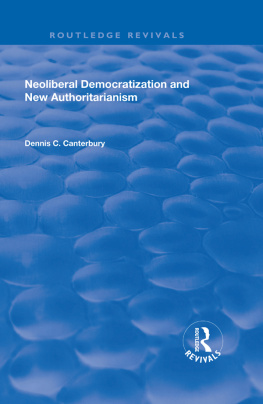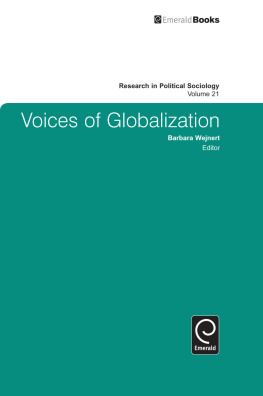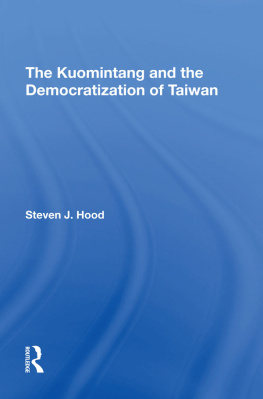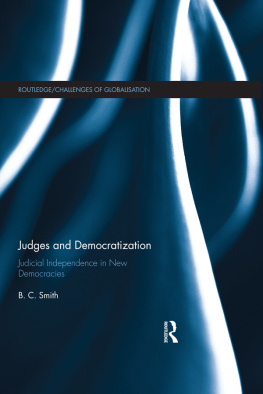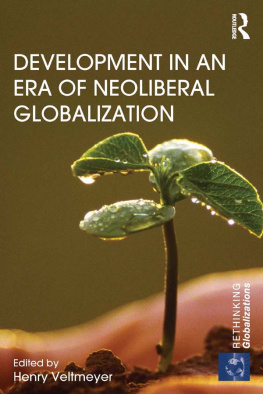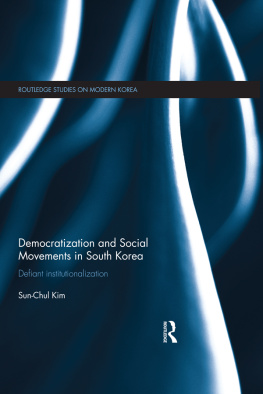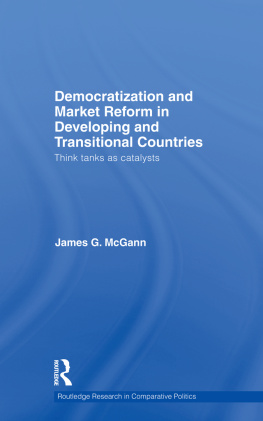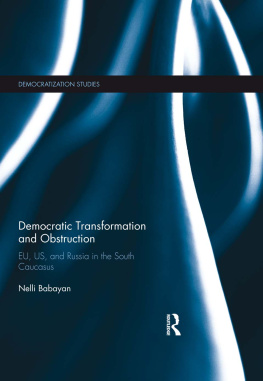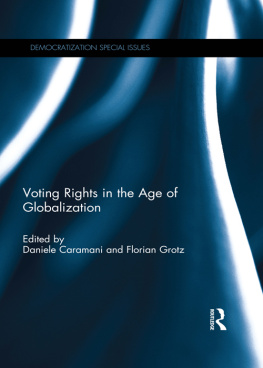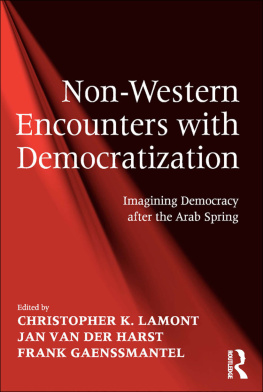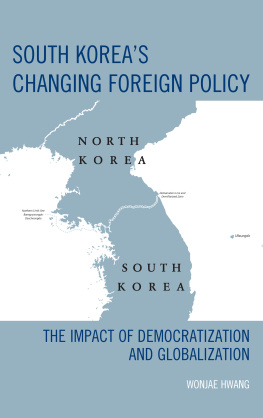First published 2005 by Ashgate Publishing
Reissued 2019 by Routledge
2 Park Square, Milton Park, Abingdon, Oxon, OX14 4RN
52 Vanderbilt Avenue, New York, NY 10017
Routledge is an imprint of the Taylor & Francis Group, an informa business
Copyright 2005, Dennis C. Canterbury
Dennis C. Canterbury has asserted his right under the Copyright, Designs and Patents Act, 1988, to be identified as the author of this work.
All rights reserved. No part of this book may be reprinted or reproduced or utilised in any form or by any electronic, mechanical, or other means, now known or hereafter invented, including photocopying and recording, or in any information storage or retrieval system, without permission in writing from the publishers.
Notice:
Product or corporate names may be trademarks or registered trademarks, and are used only for identification and explanation without intent to infringe.
Publishers Note
The publisher has gone to great lengths to ensure the quality of this reprint but points out that some imperfections in the original copies may be apparent.
Disclaimer
The publisher has made every effort to trace copyright holders and welcomes correspondence from those they have been unable to contact.
A Library of Congress record exists under LC control number:
ISBN 13: 978-0-8153-9060-2 (hbk)
ISBN 13: 978-1-351-15284-6 (ebk)
Introduction
The purpose of this chapter is to outline the basic problematic of neoliberal democratization and new authoritarianism in the twenty-first century. It presents the structure of the central argument in the book that the globalization of capitalism necessitates authoritarian regimes to maintain the social order for the extraction of the economic surplus from countries incorporated into the global capitalist system. The study draws on the historical methodological approach to explore the subject of neoliberal democratization and new authoritarianism. It is intended to fill an existing void in the current discourse on globalization by focusing on the role of politics in the expansion of capitalism. To this end, the book develops a rudimentary framework of a theory of the state in the globalization of capitalism. It explores two principal questions. What was the nature of politics and the state that emerged in the Third World simultaneously with the globalization of capitalism in the sixteenth century? How have politics and the state in the Third World been affected by the continuous process of reform in global capitalism? The book is designed to assist students, academics, and participants in the anti-globalization social movements to appreciate the materialization and persistence of authoritarianism in the Third World and the challenges that lay ahead in finding alternatives based on genuine peoples participatory democracy.
Posing the Problem
Neoliberal democratization, the political arrangements promoted by the US, allies and the institutions they control to replace authoritarian states in the current era of globalization, is at the center of diverse intellectual and political agendas, raising questions about an epoch making global transformation to democracy. It is a key concept not only in the dominant theoretical and political discourse but also in everyday political language. It is being championed by the ruling elites in the developed nations, the former communist countries, and in the Third World authoritarian states. The concept is hailed as a prescription for economic development in these two latter types of countries. The phenomenon is presented as inevitable in the globalization of capitalism with no alternative. Authoritarian states that fail to democratize are regarded as rogue states, or failed states, condemned to economic backwardness in which democracy must be imposed by sanctions and/or military force if necessary, by the global community of free nations.
But, on closer examination of the origins and nature of Third World authoritarian states, through the prism of the historical globalization of capitalism, the transition to neoliberal democratization has led to the emergence of a new authoritarianism in these countries. Economic globalization continues to have a tremendous impact on the political order in the states that are incorporated into the capitalist world economic and political system, bringing to the fore the old question about the relationship between the economy and politics.
The political consequence of economic action is a major problem that has occupied the attention of several generations of scholars (Hirschman, 1977; Hirschman, 1979; Collier, 1979; Kincaid and Portes, 1994; Silva, 1999; Przeworski, Alvarez, Cheibub, and Limongi, 2000; Przeworski, 2003). Political philosophers and political economists in the seventeenth and eighteenth centuries believed that economic activities had significant political consequences in society. Indeed, it was thought that the more advanced economic actions became the further they served to restrict tyrannical rule (Hirschman, 1977). Put in another way, the argument is that economic development would lead to an increase in political participation in a hitherto exclusionary political order. Politics is determined by economics.
The perspective that economic development results in democracy was championed by modernization theory in the 1950s and 1960s, while the dependency theorists argued that economic development could lead to either democratic or authoritarian sates. Modernization theory drew heavily on the sociological tradition of Max Weber and Talcott Parsons, the systems theory approach of political scientist David Easton, and the stage theory of economists Simon Kuznets, and Walt Rostow. The result was the emergence of a stage theory of political development (Silva, 1999: 39). As the society and economy modernize in stages, the political system becomes more democratic, accordingly.
From the viewpoint of the political philosophers, political economists, and modernization theorists therefore, authoritarianism is caused by backward economic conditions. It was in this connection that the economic development of the Third World countries was encouraged as a means to bring democracy to its peoples.
But there was always a tension that existed between economic development and democracy in that at times, in the interest of economic prosperity, drastic political measures are necessary (Silva, 1999: 32). This tension has led some scholars to argue that authoritarianism should be promoted over democracy in order to bring about economic development, with the view that eventually economic prosperity will democratize the polity (Przeworski, 2003: 42).
The idea that economic development produces democracy was refuted however by the evidence from Latin America in the post-World War II period. Instead, economic progress in that region was associated with the persistence of authoritarian regimes (Cardoso, 1979; Hirschman, 1979). These types of states that existed in the midst of economic and technological modernization were described by several scholars as the new authoritarianism (Collier, 1979).
This new authoritarianism thesis merely complemented the long held view that politics is an outgrowth of economic reality. If the new authoritarianism was a product of economic modernization then the old authoritarianism was an outgrowth of economic backwardness.

